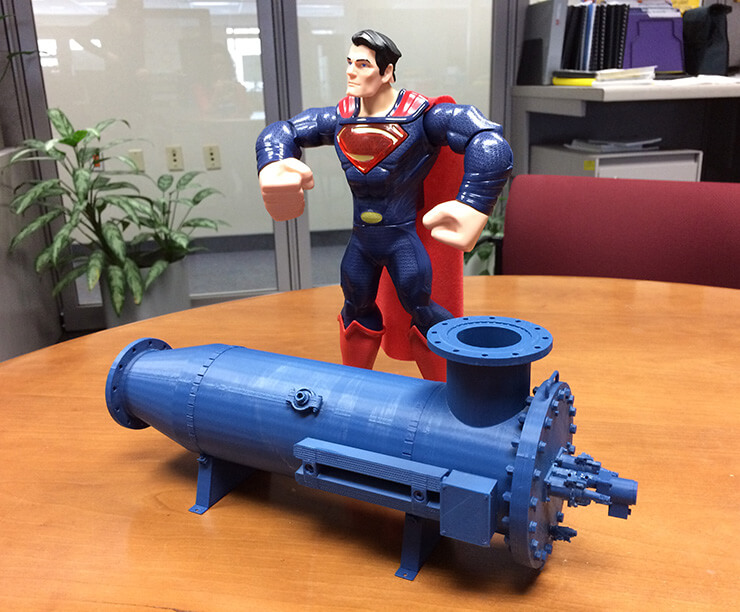How 3D Printing Is Being Used At Trojan Technologies
In the last decade, the use of 3D printing has exploded within the manufacturing industry. Trojan Technologies acquired its first 3D printer six years ago as a way to save time in developing custom parts. Currently, there are two 3D printers running full-time at the London, Ontario head office, and they have transformed the way the parts process works at Trojan.
Before 3D Printing
Before the 3D printers were in use, producing parts during the prototyping phase was a very time-consuming process. Pieces were handmade in-house or would need to be outsourced, and there was a risk they would not fit after having been developed.
However, now with the 3D printer, each part can be custom-designed, and if a part doesn’t fit – it’s simply a matter of making tweaks on the computer and reprinting them. This has shaved weeks off Trojan’s development process.
“The printers have allowed our team to think outside the box, making it possible to print something new almost every day.”
– Ryan Moffatt, Technologist at Trojan Technologies
The 3D Process
The 3D printing process begins on the computer, where a virtual design of the objected is created. The design is made in a computer aided design (CAD) file using a 3D modeling program, and from there, the design is sent to the printer. Objects can take anywhere from three hours to three days to print, depending on the size and complexity.

Superman and a scale model of the TrojanUVTelos.
The printers at Trojan are able to print a variety of plastic grades and are capable of printing a diverse number of objects, producing prototype models for sales and marketing (such as the scale model of the TrojanUVTelos drinking water inactivation system above).
The technology is now an integral part of the engineering process at Trojan, and will only continue to aid in the development of innovative and effective water treatment technologies.
Featured Posts
La primera planta piloto de reutilización de agua potable en Europa utiliza Trojan UV AOP
Trojan se enorgullece de formar parte del proyecto de purificación de agua AIGUANEIX del Consorci d'Aigües Costa Brava Girona Trojan Technologies se complace en compartir que formamos parte del proyecto piloto de reutilización de agua AIGUANEIX de la Diputació de...
First Potable Reuse Demo Plant in Europe uses Trojan UV AOP
Trojan is proudly part of the Consorci d'Aigües Costa Brava Girona’s AIGUANEIX water purification project Trojan Technologies is excited to share that we’re part of Diputació de Girona and Consorci d'Aigües Costa Brava Girona’s AIGUANEIX water reuse pilot project at...
Trojan Technologies Opens First U.S. Distribution Facility in Grand Rapids, Michigan
On March 3, 2025, Trojan Technologies celebrated the grand opening of its first U.S. distribution center in Grand Rapids, Michigan. This strategic expansion underscores the company's dedication to enhancing customer experience and optimizing the delivery of its...




